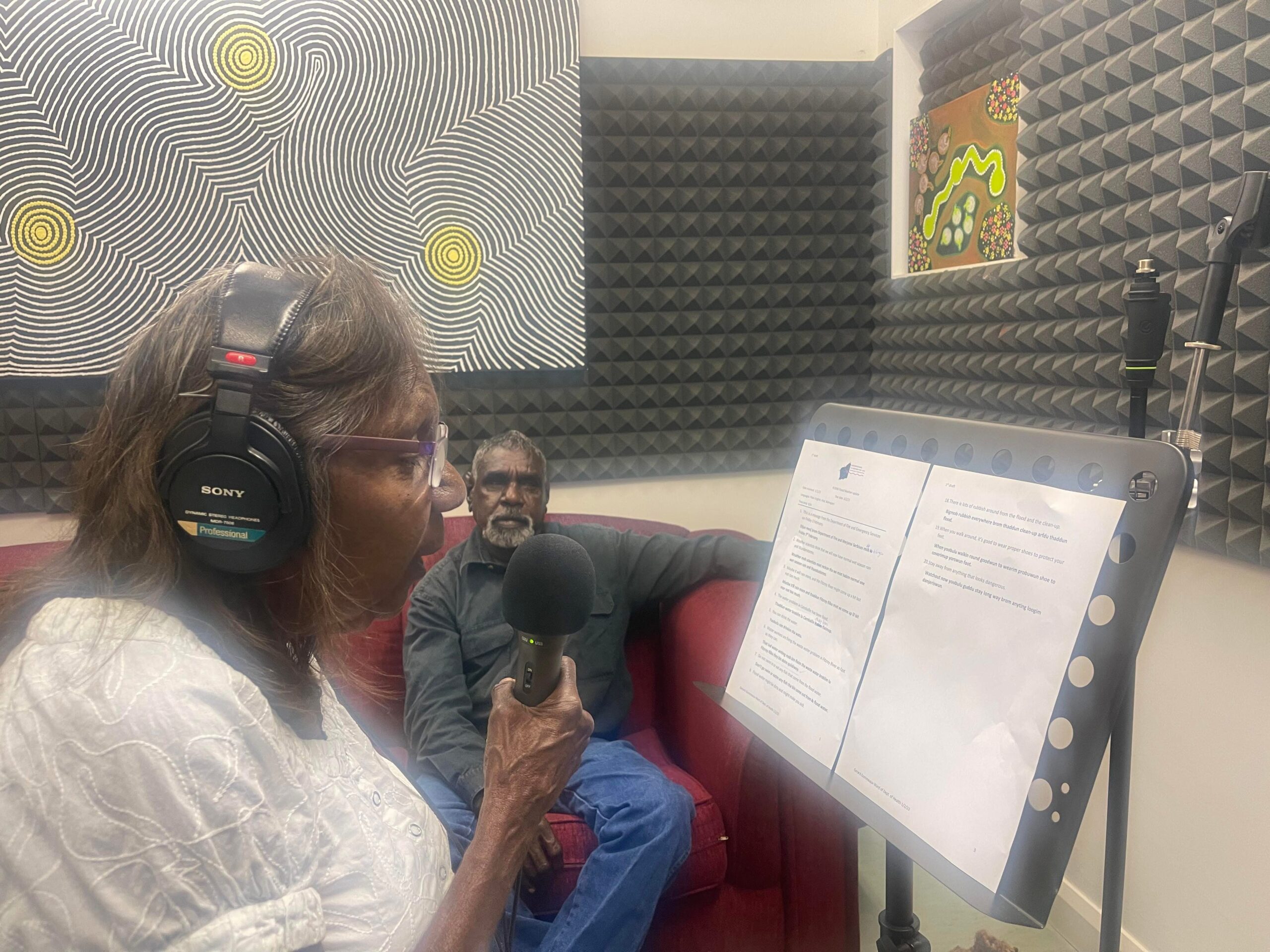Many AUSIT members were saddened to hear in January that Australia’s T&I community had lost one of its most inspirational figures, AK,* a pioneer of Indigenous interpreting and former Director of first the Kimberley Interpreting Service, then Aboriginal Interpreting WA (AIWA). Her colleague and the CEO of AIWA, Deanne Lightfoot, has worked with Patsy McGinty, AK’s niece and a trained interpreter, to put together the following tribute on behalf of all their colleagues at AIWA, and the wider Aboriginal and T&I communities.
* AK’s full name is used above, and her photos, with permission from her loving family. AK’s initials are used by Deanne as a culturally respectful alternative to her full name.
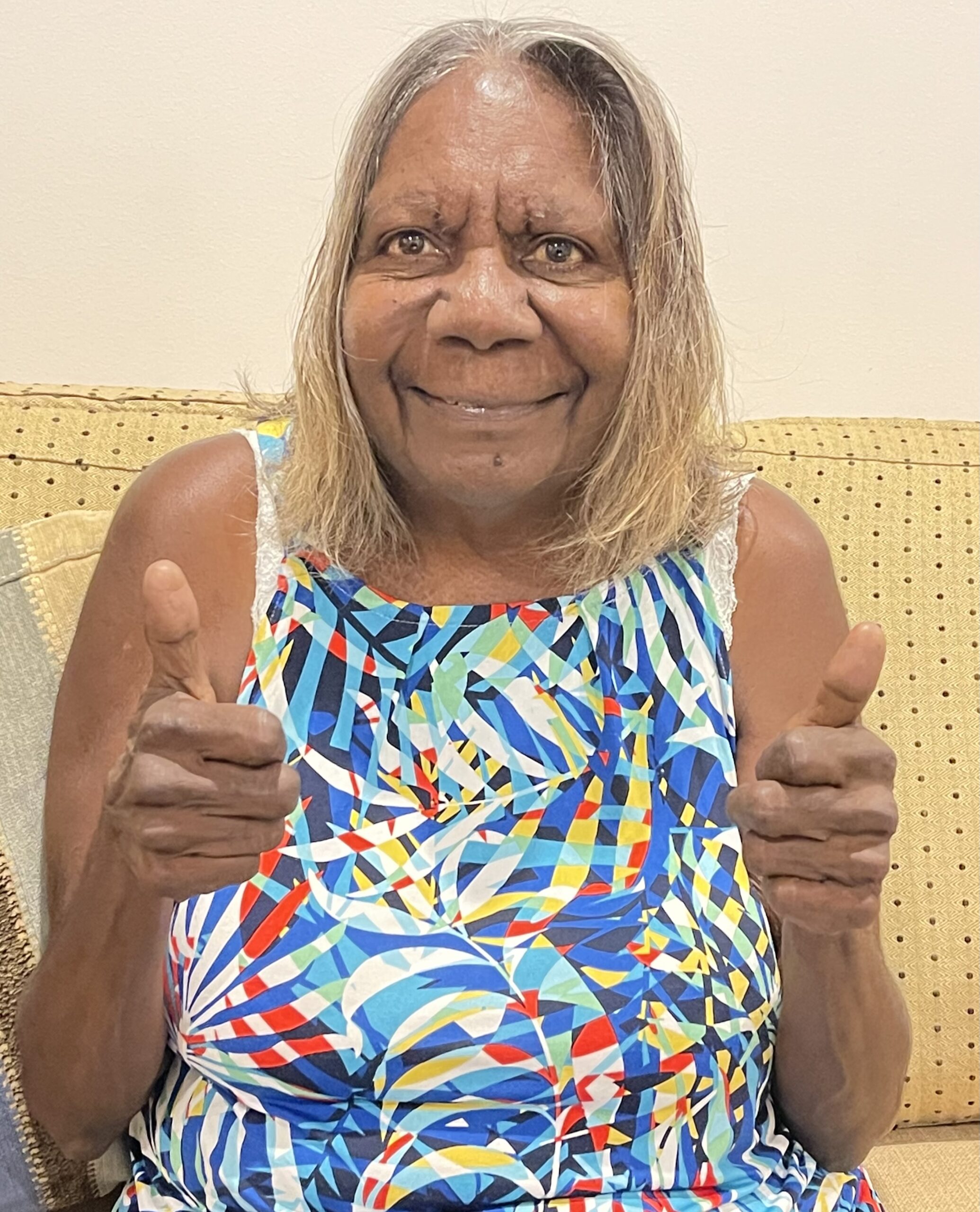
Her journey was marked by dedication to ensuring that Aboriginal people had a voice in their own language.
AK – a Senior Kimberley Walmajarri woman of Nyapajarri skin, with bush names Puruta and Wayawu – was a trailblazer in the field of Aboriginal interpreting.
A traditional owner of Walmajarri Juwaliny country and a resident of Karnparrmi (Three mile) and Bayulu Community in Fitzroy Crossing, AK’s legacy as one of the first Aboriginal interpreters in the country spans decades, and has profoundly influenced the lives of countless individuals. She was not only a well-respected senior interpreter but also a dedicated leader, serving as the Co-Chair and Director of both the Kimberley Interpreting Service (KIS) and Aboriginal Interpreting WA (AIWA). Throughout her life, AK’s unwavering commitment to Aboriginal language and culture made her both a role model and an inspiration.
AK’s career began in 1982, when she became one of the first Aboriginal language-trained interpreters in the country. As a member of the pioneering group of interpreters, she devoted 45 years to this important work. Her journey was marked by dedication to ensuring that Aboriginal people had a voice in their own language, particularly within the health and justice systems. This mission was a driving force for AK, and she worked tirelessly to elevate the role of interpreters, to ensure that Aboriginal language speakers were respected and understood.
In the very late 1990s, AK, alongside a group of passionate language and cultural leaders, helped launch the Kimberley Interpreting Service, which evolved into AIWA. This was a pivotal moment in the history of self-determination and cultural leadership for Aboriginal interpreting in the nation. AK’s consistent influence was instrumental in its growth and success, and under her directorship, AIWA became a cornerstone of the Aboriginal interpreting profession. She played a key role in the organisation’s launch in 2017, working alongside prominent figures such as WA’s then Premier Mark McGowan, MP Josie Farrer, and Chief Justice Wayne Martin to establish AIWA as a vital institution for Aboriginal interpreters in WA.
.
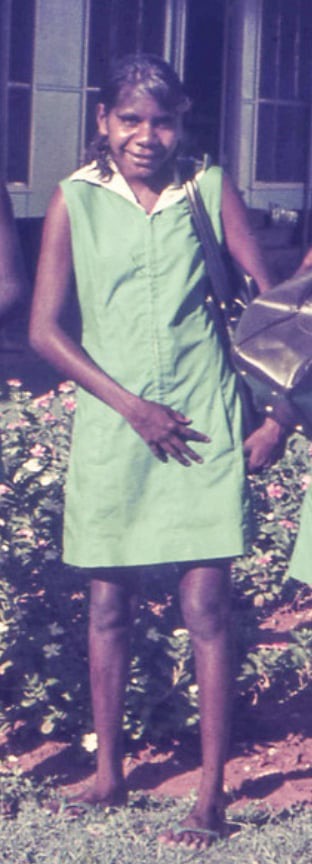

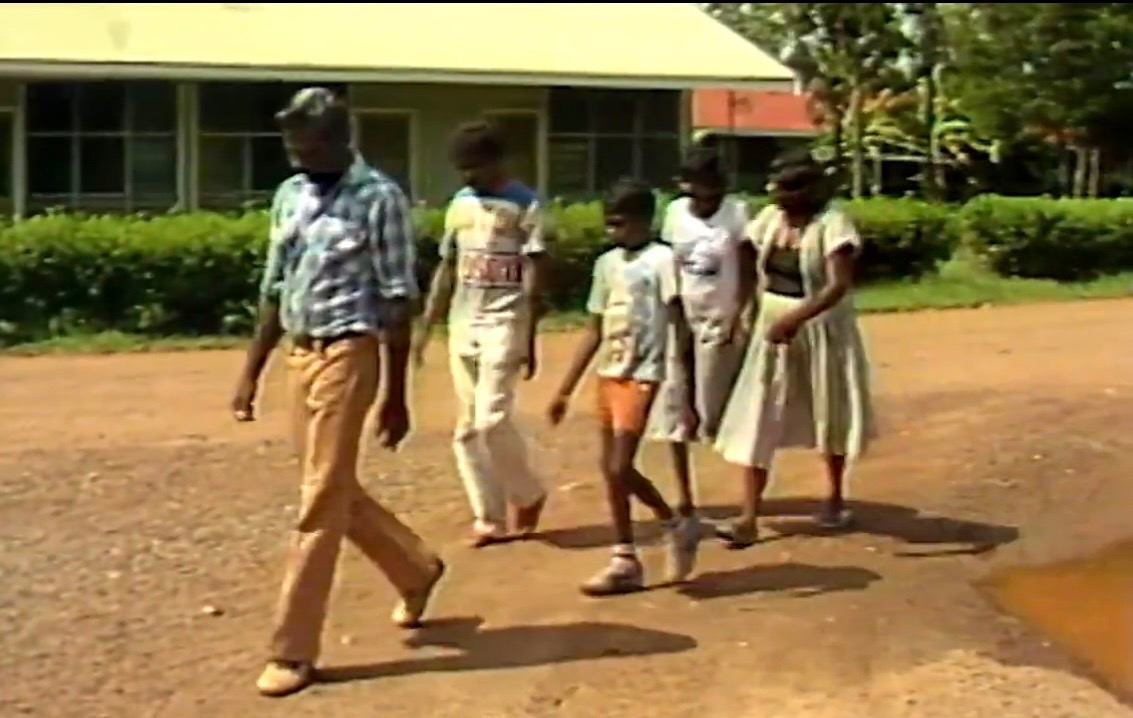
AK’s commitment to AIWA was unwavering, and she remained an active and passionate leader right up until the end of her career. Just before Christmas 2024 she attended her last Director’s meeting, and in November she had addressed her fellow Australian interpreting and translating professionals at the AUSIT National Conference 2024 in Melbourne. In this address, she proudly announced that AIWA had withdrawn from the NAATI accreditation system, advocating instead for a culturally appropriate training and registration model, and emphasising the importance of embedding cultural protocols in leadership, service development, delivery and practice – in other words, in every step of the process.
AK brought decades of experience to training and mentoring interpreters, having developed and delivered both in-house training and Diploma of Interpreting courses. She played a key role contributing to the development and delivery of an earlier NAATI accreditation model for Aboriginal language speakers. In this capacity, she served as both a cultural screener and a developer of learning and testing materials, as well as a trainer and assessor. More recently, AK was a strong advocate for cultural voices to be heard and respected in NAATI’s more recent efforts in engaging with Aboriginal language interpreting.

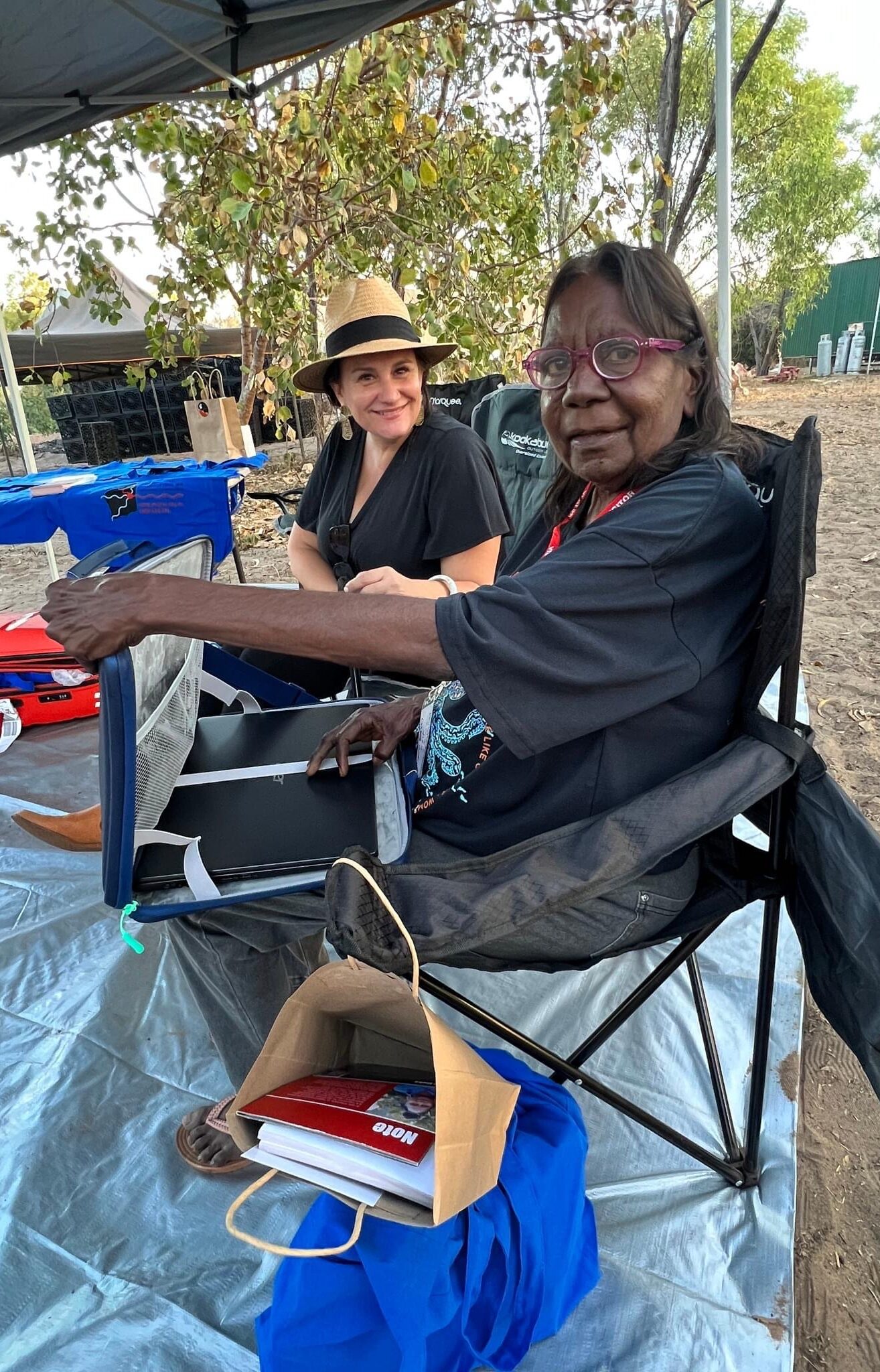
AK’s passion extended beyond the spheres of administration and advocacy. She was dedicated to training and mentoring interpreters, helping them develop the skills and confidence necessary to navigate both Aboriginal cultural practices and the professional requirements of the interpreting field. She also educated a wide range of professionals – doctors, nurses, lawyers and judges – on how to work effectively with interpreters. Most recently, she worked with a group of District Court judges, reminding them of their legal obligations and ethical standards in working with interpreters in courts and tribunals.
AK’s work did not stop at the development of KIS. She was deeply involved in the advancement of Aboriginal language rights and recognition. In 2004, she played a key role in securing the recognition of Aboriginal languages in the WA Language Services Policy, in line with the UN Declaration on the Rights of Indigenous Peoples, which asserts that everyone has the right to speak and understand in their own language through interpreters. She worked tirelessly to ensure Aboriginal languages were included in government and legal frameworks, striving to bridge the gap between the cultural and professional worlds.
Her passion for making sure things were done the right way was a hallmark of her leadership …
AK’s work was truly global in scope. She represented both AIWA and Australia proudly, and helped develop a wellbeing plan for interpreters a decade ago. Beside AIWA colleagues, she shared this groundbreaking plan with international T&I practitioners at the triennial FIT World Congress in Cuba in 2022. She also travelled to Myanmar, where she participated in a major conference with Asia–Pacific native title groups, reflecting on her experiences in her own native title determination, and sharing a ‘best practice’ example of interpreting in the Argyle Diamond Mine negotiations. These were just a few of the many significant moments in AK’s career, but they speak to her profound influence, not only in Australia but also on the international stage.


Throughout her life, AK remained committed to doing things ‘the proper way’ – both culturally and professionally. She always emphasised the importance of balancing cultural practices with professional standards, which she referred to as ‘the AIWA way.’ She believed in doing things with integrity and respect, ensuring that Aboriginal interpreters and their work were treated with the dignity they deserved. Her passion for making sure that things were done the right way was a hallmark of her leadership, and it is a legacy that will continue to inspire the work of AIWA and the broader Aboriginal interpreting community.
In December 2024, AK celebrated a new contract to develop a national framework for Aboriginal and Torres Strait Islander interpreters across the country. This achievement, alongside her leadership in securing expanded funding for Aboriginal language services, marked significant milestones in her career. Her work with Melbourne University, researching the interactions between Aboriginal language speakers and health services, and her involvement – through AIWA – in a cultural exchange inspired by AUSIT’s Immediate Past President Erika Gonzalez with the EU Basque Country Parliamentary interpreter, underscored her lifelong dedication to improving the professional recognition and cultural competence of Aboriginal interpreters.
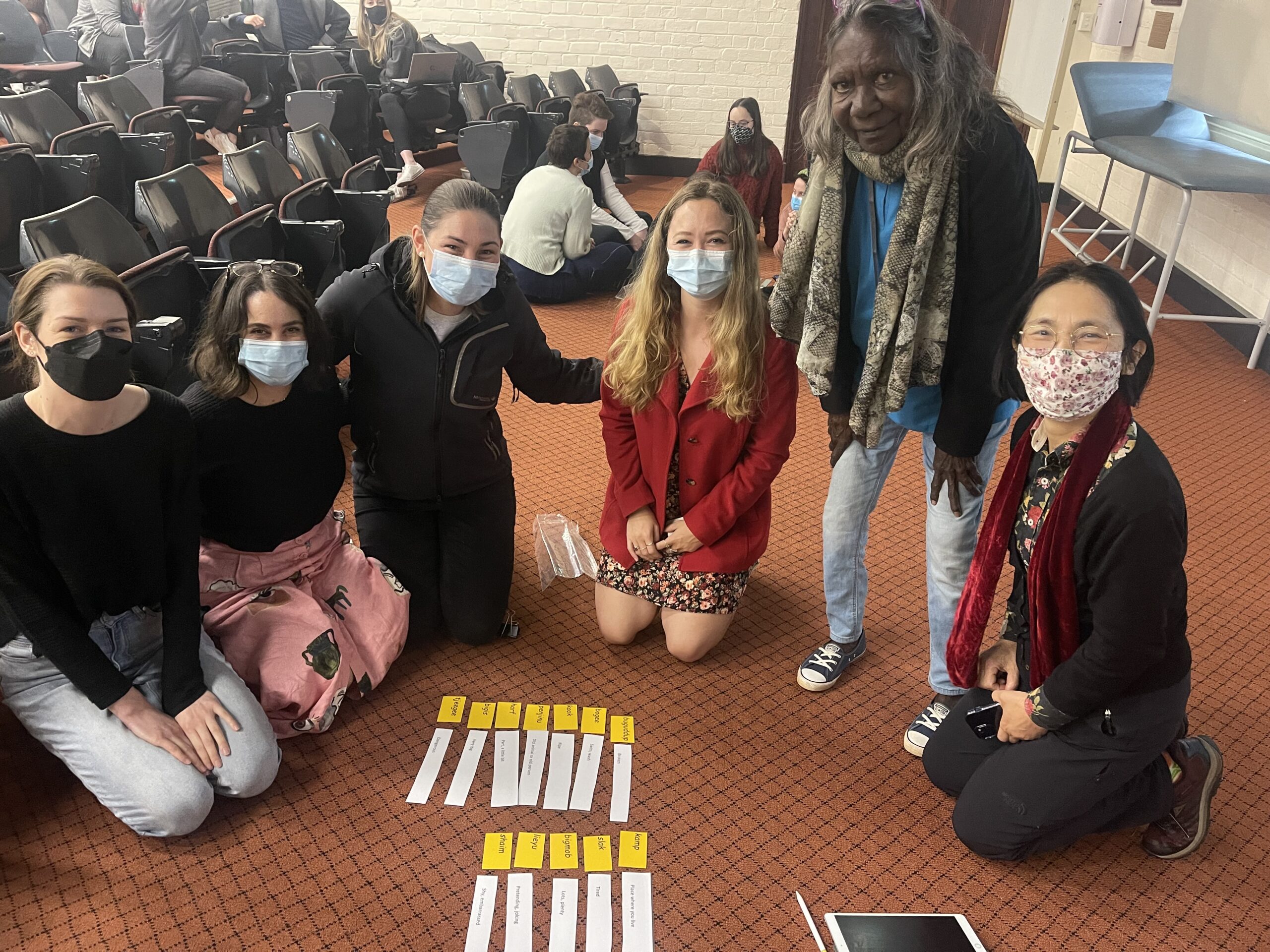
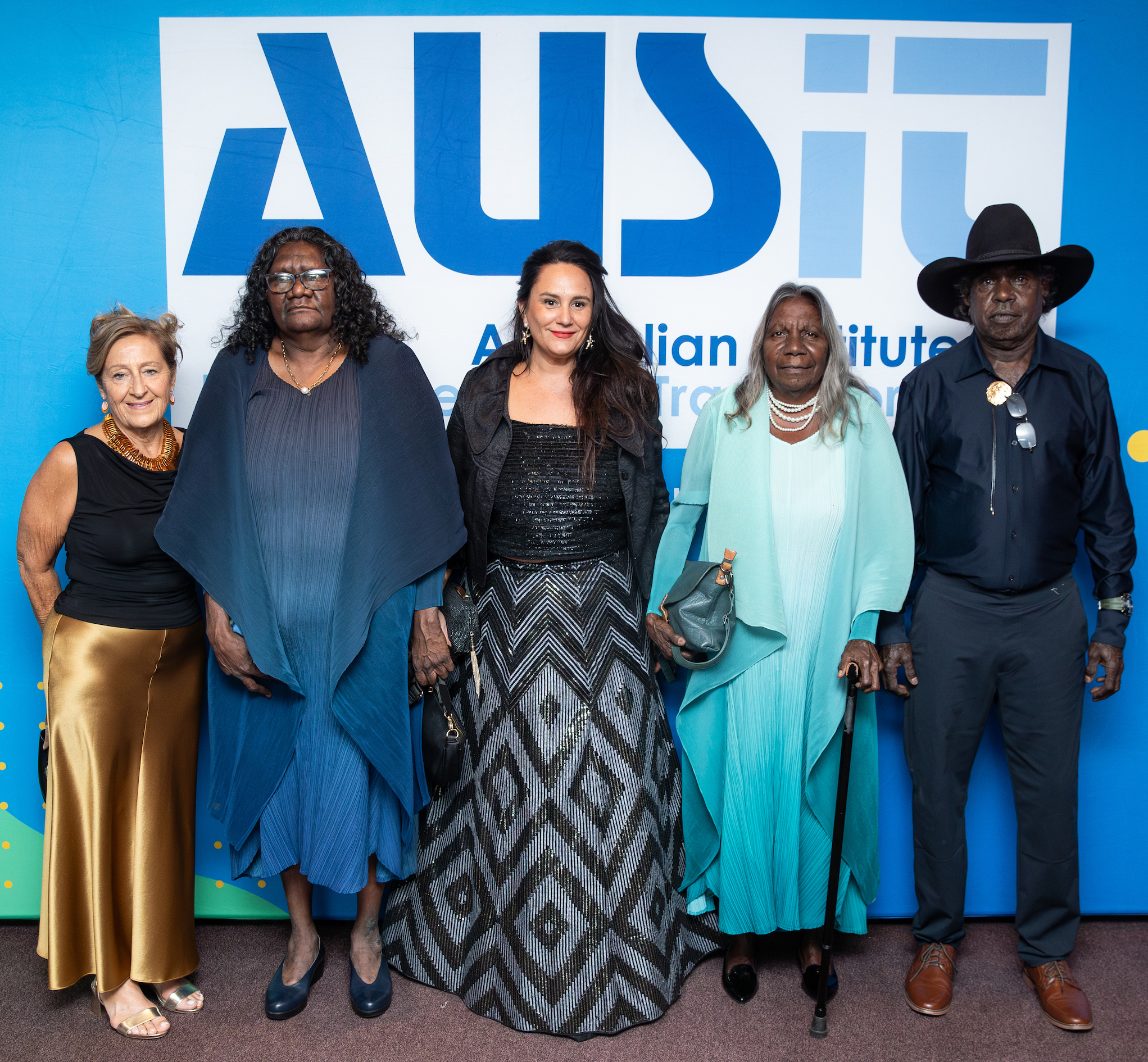
AK was a leader, a mentor, and a friend to many. She was often in powerful positions, and she used those opportunities to improve the lives and linguistic presence of others. Her legacy is built on a foundation of hard work, respect, and deep commitments to both Aboriginal culture and professional excellence. The work she began will continue, and her voice, wisdom and vision will guide AIWA and the interpreting community for years to come.
AK’s passing leaves a profound gap in the Aboriginal interpreting community, but her legacy will live on. Her work will continue to inspire and shape the way we engage with Aboriginal language speakers, ensuring that their voices are heard and understood. We are lucky to have had AK as a strong voice and guiding force in our lives and work. Although she is no longer with us, we know that she will continue to watch over us, giving us signs and inspiring us as we carry forward her life’s passion for interpreting excellence.
